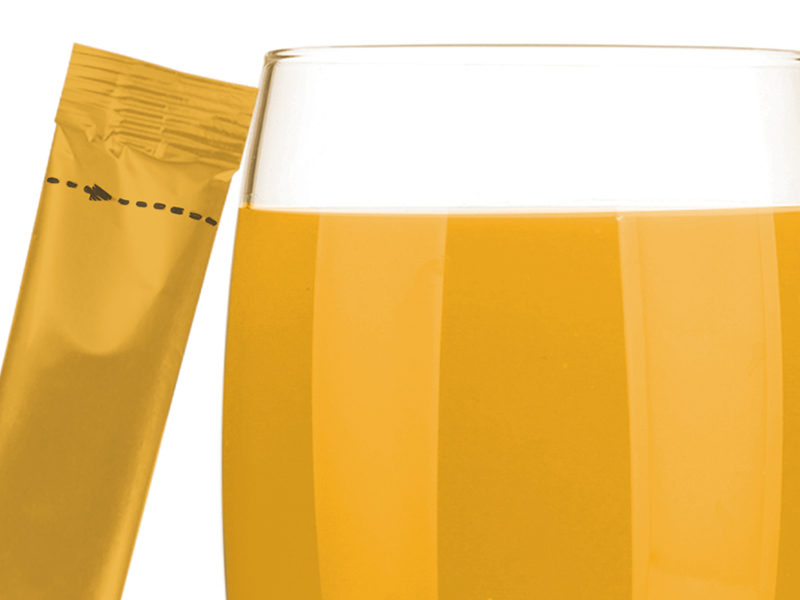
Collagen and skin food supplements
By Aurélie SIFFRE, French Doctor of pharmacy.
In 2020, the exceptional health crisis has changed the consumption habits of french people, who have particularly turned to immunity/vitality food supplements (+18.6% in pharmacies in France), and stress/sleep category (+9.3%). Nevertheless, the beauty segment managed to do well (+5.4%), and continues to attract growing interest, strengthened by the expectation of a short-term end to the pandemic [1].
Beauty food supplements, which target?
In drugstores, many people are interested in food supplements to complete the varied offer of creams, serums, eye contours, anti-ageing masks… What is the desired effect? Comfort, of course – suppler and better moisturised skin – but above all an anti-wrinkle and firming action.
From the age of 35, women (mainly) are looking to reduce the first signs of aging by nourishing their skin from the inside.
The pharmacy is the ideal place to combine these two pieces of advice. A Synadiet article on the year 2020 confirms this trend: “for the French, the prescription by a health professional, particularly the doctor and the pharmacist, is the primary incentive for the purchase and consumption of food supplements: 60% of them are convinced by the advice of a health professional”. [2].
The rise of collagen for skin beauty
Beauty/anti-ageing supplements usually contain antioxidants, hyaluronic acid, moisturising vegetable oils and collagen. The latter is particularly popular nowadays. Besides, last year, we referenced two collagen-based products in our pharmacy, one in capsule form and the other in powder form, to meet the growing demand.
According to a recent report, the collagen peptide market continues to grow at a rate of 8% per year [3].
Collagen, in a few words
Collagen, or more accurately collagens, are glycoproteins synthesised mainly by fibroblasts. There are 28 different collagens divided into 3 families. They have multiple biological functions: structural, through fibrous collagens which contribute to tissue architecture, and essential, such as proliferation, differentiation and cell migration [4].
Skin ageing is linked to a drop in collagen production, approximately 1% per year from the age of 40, according to several studies. It is intensified by elements such as pollution, smoking, coffee, intensive sport…
Unfortunately, no food contains collagen. The solution is therefore to provide collagen through food supplements, with several possible origins: beef, pork, fish, etc. There are different types of collagen depending on the source: type I (skin, bone) and type II (cartilage, in particular).
In recent years, several suppliers have carried out studies on the oral intake of collagen peptides. A dose of between 2.5g and 10g per day seems to show convincing results on skin hydration, firmness and elasticity, as well as an anti-wrinkle action, as early as 8 weeks of intake [5].
Collagen combined with vitamin C
The European authorities recognise the essential role of vitamin C in the synthesis of collagen in the skin with this claim: “Vitamin C contributes to normal collagen formation for the normal function of skin”.
Indeed, vitamin C is an essential cofactor for the enzymes responsible for this synthesis, in addition to providing photoprotection.
Recent studies have also shown that vitamin C acts directly on DNA to increase transcription and stabilise procollagen messenger RNA, thereby maintaining the intercellular amount of collagen [6].
There is therefore a clear benefit to combining collagen and vitamin C in oral supplementation.
Collagen, the pharmacist’s advice
How to choose a collagen-based food supplement for the skin?
– Favour sustainable fishing, and favour brands that communicate on food safety (no hormonal treatment, pesticide control, fertilisers for food, etc.) that respect European regulations.
– Choose “hydrolysed” collagen, the result of enzymatic hydrolysis of gelatin to obtain collagen peptides. In this form, collagen has an absorption rate of 90%.
– Look for the number of collagen peptides and favour the supplements that contain the most (up to 18).
– Choose a type I collagen for the skin (type II being more specific to joints).
There are no contraindications, except in cases of liver and kidney failure, since it is a protein.
[1] Synadiet – Pharmacy sales, source: IQVIA – December 2020
[2] Synadiet – Food supplements observatory
[3] Nutraingredients – Collagen well positioned to respond to growing cosmetic and sports sectors, report says
[4] Medical Dictionary of the Academy of Medicine – collagen
[5] Suppliers’ sources
[6] ScienceDirect – collagen synthesis
- Post Tags:
- antioxidant
- beauty
- food supplement
- Posted In:
- News







